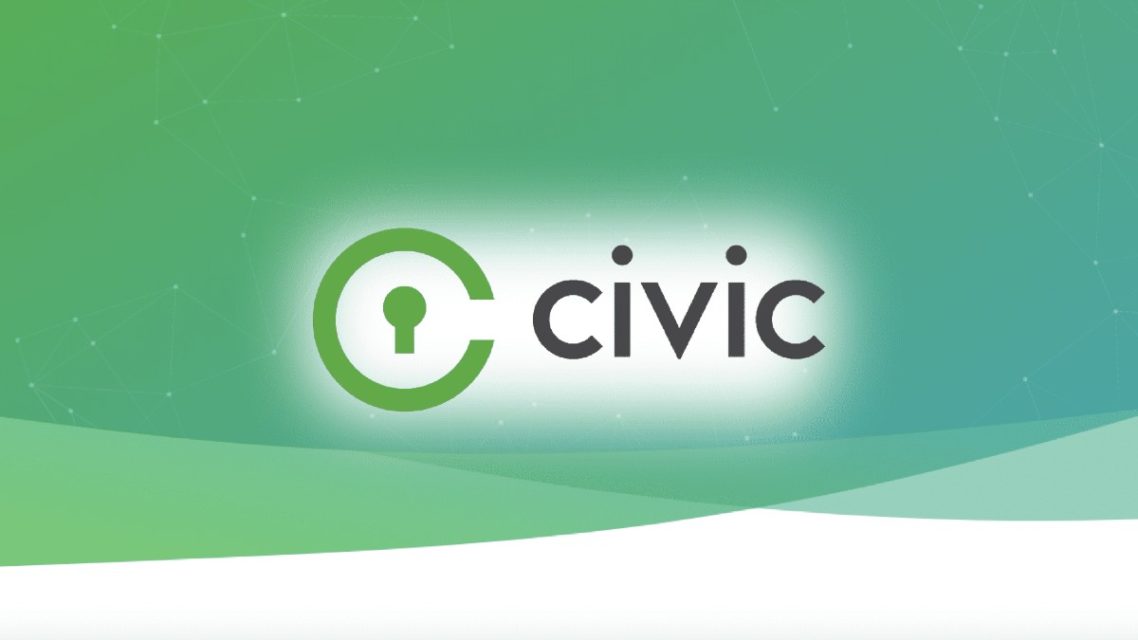In this article, we tried to answer questions such as what is CVC coin, what is cryptocurrency Civic (CVC), how to buy CVC coin. Here are the comments and details about the future of CVC coin…
How much is CVC Coin?
According to current crypto money market data, 1 CVC Coin 3.15 TL is traded at TL. CVC Coin price has changed 4.77% in the last 24 hours. The trading volume of CVC Coin in the last 24 hours is 21,149,448 $ dollars, its total market cap is 127,738,322 $ dollars.
How much is CVC Coin?
According to current crypto money market data, 1 CVC Coin 0.190155 $ is traded at dollars.
What is CVC Coin?
CVC coin is a blockchain-based identity management solution that provides individuals and businesses with the tools they need to control and protect their personal identity information.
Effective data protection and authentication standards are essential for users, companies and regulators in crypto and the Web3. Civic has introduced a blockchain-based identity layer that builds trust between parties using Identity.com, which offers a structured approach to verified credentials interoperable across platforms. The Civic product line is focused on two things: protecting private user data by leveraging the open-source Identity.com ecosystem and creating solutions that help companies meet Anti-Money-Laundering (AML) and Know-Your-Customer (KYC) requirements. Protocols in the Identity.com ecosystem are powered by the ERC-20 compliant Civic token (CVC).
Blockchain Authentication
Your digital identity is a personal record of your data, identity information and identifiers that exist across the internet. It can contain everything from passwords to account numbers, browser history and social media profiles. With so much of our lives being spent online, today’s internet users are increasingly realizing the importance of actively managing their digital identities to prevent data breaches, hacks and non-consensual data monetization. Rather than relying on centralized databases or large institutions to protect private data as is standard on Web2 platforms, newer forms of digital authentication use emerging technologies such as cryptography, artificial intelligence, and blockchain-based identity solutions to increase security and user control.
Maintaining personal control of your personal data means that you only share certain data required for a data transaction while allowing the rest of your data to remain confidential. For example, to purchase an age-restricted product, you can share your age without sharing your address. This is an example of what is practically called self-sovereign identity. Blockchain identity management tools facilitate the onboarding of the platform for both the applicant and the auditor. They can reduce fraudulent activity such as online impersonation, account hijacking attacks, and countless other forms of online fraud.
With the growth of decentralized finance (DeFi) and decentralized exchanges (DEXs), many institutional investors and investment firms are interested in joining this dynamic industry. However, due to various regulatory requirements, there remains a lack of clarity around established standards for data and privacy in the emerging Web3 world. Blockchain authentication solutions provide a pathway to Anti-Money-Laundering (AML) and Know-Your-Customer (KYC) requirements. More importantly, to meet compliance requirements for certain DeFi services, companies must be able to retain customer information for stipulated periods. Civic provides tools to help bridge dynamic regulatory requirements with Web3. By using blockchain-based digital identity solutions such as Civic’s identity management tools, institutions are finding a way to interact with DeFi securely in their underlying architecture.

Civic Solution for Blockchain-Based Digital Identity
Launched in 2015, Civic has created an identity for each user. It provides tools that allow users to authenticate once and then reuse their verified identity wherever company services are used. The company offers Civic Pass, an on-chain solution that allows decentralized apps (dApps) to inspect users’ privacy and restrict access to their offerings.
Civic Pass is the flagship Civic identity management product. The online tool offers global blockchain authentication, IP location checks for security, and permissioned DeFi access for everyone from retail investors and liquidity providers to dApp creators and institutional investors. Because Civic Pass is an on-chain solution, end users can interact with dApps via a user interface (UI) or an application programming interface (API). Liquidity providers, dApp developers, and corporate contributors can manage risk and build trust in the crypto ecosystem with Civic’s tools. Users of Civic identity management tools can choose from the following controls: a real person vitality check (ie no bots); global authentication (KYC); watchlist scanning and ongoing monitoring (OFAC reviews, sanctions lists, Politically Exposed Person (PEP) checks, etc.); IP-based location checks, including VPN detection; and email and phone verification.
Available in over 190 countries, Civic Pass can be used for a variety of applications both inside and outside the crypto world. For example, age and authentication applications can be used across the internet. However, Civic Pass was created specifically to offer Web3 functionality. Some of the crypto-specific features and tools in Civic Pass are:
- Civic Pass for NFTs: This anti-bot tool is for fair participation and flagging bots trying to play games on systems, Unique token (NFT) drops can be used for sales and auctions. It does this by using artificial intelligence (AI) to authenticate recipients through a video-based screen capture authentication process. It also allows for an optional KYC and AML layer for high profile NFT releases. An example of integration is Metaplex’s Candy Machine NFT edition tool.
- Civic Pass for DeFi: Total value (TVL) unlocked in DeFi in 2021 exceeds $160 billion. With the ever-increasing growth of DeFi and DEX trading volume, many jurisdictions are looking into this area more closely. Depending on location, these DeFi products, services and dApps may be required to meet certain regulatory requirements. While many institutions and high net worth individuals (HNWIs) want to stay within the bounds of the law, DeFi is interested in gaining access to investment and trading opportunities. In addition to KYC and AML, these agencies may also need to deal with the Office of Foreign Asset Control (OFAC), Financial Action Task Force (FATF), and various Counter-Terrorism Financing (CTF) legislation. The Civic crypto team aims to provide permissioned access to dApps and DEXs for the corporate investment crowd by offering a built-in Civic identity layer to dApps, turning compliance directly into an on-demand Civic digital identity solution. Retail investors may require a Civic KYC or Civic AML check, which can also be obtained through a Civic ID check. For example, Solrise DEX Pro is a permissioned DEX that leverages KYC via Civic Pass.
Civic Pass is designed to enable faster and more cost-effective onboarding through the use of an AI-optimized verification system paired with a human review process to detect fraud and remain compliant with AML and KYC regulations. No personally identifiable information (PII) is stored on the blockchain. This is a security layer designed to protect Civil ID users’ PII from potentially malicious actors. Another important feature is the ability to verify certain parts of your CIVIC ID without needing to share everything it contains.
CVC Token
The Identity.com ecosystem that Civic benefits from is powered primarily by the Civic token (CVC), which functions as a utility token. The CVC token uses the ERC-20 standard and is used to close transactions between users.
Civic Crypto Partnerships and Blockchain Identity Integrations
In March 2021, Civic announced an integration with the Solana blockchain. Although initially focused on Ethereum, this update was made to utilize Solana’s high throughput and low transaction costs.
Civic has also partnered with nonprofit Identity.com, an open-source identity ecosystem that provides decentralized protocols and tools for issuing and verifying identity-related information in on-chain and off-chain applications. Identity.com has also integrated with Solana to provide a blockchain identity management marketplace for identity providers, claimants and authenticators.
Civic Identity Solutions for DeFi and Beyond
Building self-sovereign and blockchain native identity solutions in Web3 is a major focus for blockchain and DeFi platforms and will have a profound impact on the future Internet architecture. In today’s crypto environment, some stakeholders are eager for more regulation and legal clarity, while some crypto purists advocate permissionless networks and decentralization. Civic strikes a balance between helping protect people from harm without hindering innovation by adding value to people on both sides of its product line. Most importantly, Civic provides users with privacy and control and provides a pathway to a better authentication ecosystem for Web3.




